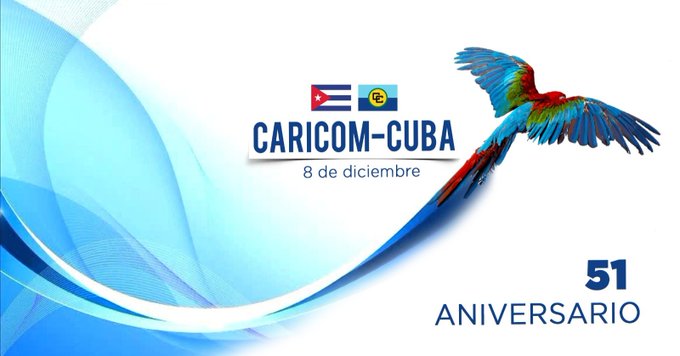Cuba-Caricom: One more year of mutual support
Havana, Dec 26.- In the year in which the Caribbean Community (Caricom) and Cuba celebrated the 51st anniversary of their bilateral ties, both parties supported each other in the international arena, especially to demand the end of the blockade imposed by the United States on the Cuban people.
Guyana, Jamaica and Trinidad and Tobago broke in 1972 the diplomatic and political isolation to which Washington had subjected Cuba after expelling it from the OAS following the revolutionary triumph of 1959, and re-established relations with Havana. Since then, ties between Cuba and its Caribbean neighbors have been growing and strengthening.
During these five decades, Havana has provided scholarships, technical aid and assistance in natural disaster crises, while a large number of its health professionals have provided services in the bloc made up of more than 10 territories and nations.
These are Antigua and Barbuda, Bahamas, Barbados, Belize, Dominica, Grenada, Guyana, Haiti, Jamaica, Montserrat, St. Lucia, St. Kitts and Nevis, St. Vincent and the Grenadines, Suriname and Trinidad-Tobago; while Anguilla, Bermuda, Cayman Islands, Turks and Caicos Islands and British Virgin Islands are associate members.
One of the most significant demonstrations of Cuba’s solidarity with the region was the deployment of more than 1,200 doctors in Haiti to fight the cholera epidemic that hit that nation in 2010, with a death toll of thousands of people.
Meanwhile, the integration mechanism founded in 1973 demands in all international forums the immediate end of the economic, commercial and financial blockade maintained by Washington for more than half a century, and which on November 2 was once again categorically rejected by 187 nations of the world.
The US blockade against Cuba “leaves aside the principles of multilateralism” and is a clear violation of the letter and spirit of the UN Charter, the representative of Saint Lucia, Menissa Ramballi, speaking on behalf of Caricom, told the General Assembly.
It constitutes “an obstacle to trade between that country and Caricom,” and also to regional cooperation, Ramballi added, also endorsing previous statements by the Non-Aligned Movement, the Group of 77 and China, and the Community of Latin American and Caribbean States (CELAC). (Taken from Prensa Latina)


